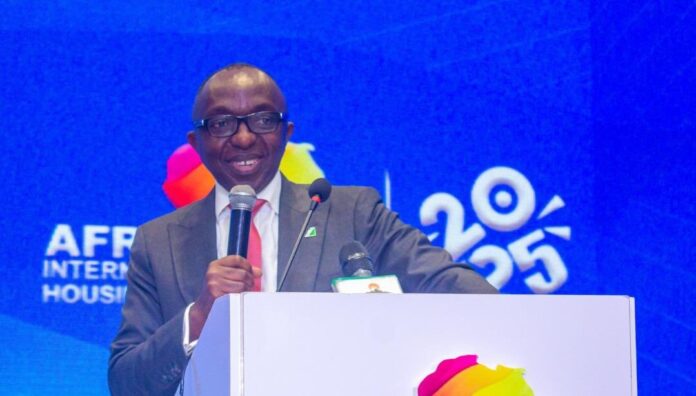The Ministry of Finance Incorporated (MOFI) has announced that the Federal Government’s N38.3 trillion investment assets are under audit and reform to strengthen transparency and corporate governance in public enterprises.
The Chief Executive Officer, MOFI, Dr Armstrong Takang, made this known during the inauguration of the 2025 Guidelines on Corporate Governance by the Nigerian Communications Commission (NCC) on Wednesday in Lagos.
Takang said that, for many years, Nigeria lacked a proper record of the public assets it owned.
According to him, most people could not even say what the country owned, where those assets were located, or how they were performing.
“When we started this process, the records showed only N1.5 trillion in value for government-owned assets, but after assessing just 20 of those assets, we identified N38.3 trillion in net asset value,” Takang said.
He noted that many of these enterprises had not paid dividends in decades, with some completely abandoned or operating below capacity.
Takang cited examples of formerly promising companies, including Nigerian Airways, Ajaokuta Steel, and Delta Steel, that ultimately collapsed over time.
“We spent billions of dollars to establish these companies. Yet today, some of them are nothing more than ghost towns. No value is coming back to the Nigerian people,” he said.
Takang said a major reason for long-term failure in some public enterprises was the lack of corporate governance, noting that the systems and rules that guide how businesses were managed were faulty.
He explained that many managers of government-owned companies acted without accountability, transparency, or clear responsibilities.
“Those who were in charge of these companies often behaved as if they were not answerable to anyone. There was no transparency, no audited financials, no performance reporting and nobody was held responsible when things went wrong, ” he said.
To fix this, Takang said MOFI was building a comprehensive asset registry to track every public investment asset owned by the federal government.
According to him, the registry will show what is owned, where it is located, its financial value, who manages it, and how well it is performing.
“This is not just for record-keeping, It is about transparency and accountability. Every Nigerian deserves to know what the government owns and what returns we are getting from those investments,” he said.
He added that the registry would help in making better decisions about whether to grow, sell, or restructure assets.

